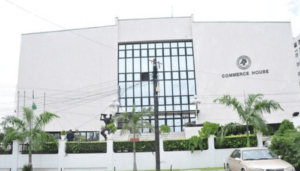The Lagos Chamber of Commerce and Industry (LCCI) has said that the Omicron variant of the Coronavirus (COVID-19) pandemic may soon lead to a downward trend in oil prices.

LCCI President, Dr Michael Olawale-Cole made the projection at the Chamber’s first quarter press briefing on Tuesday in Lagos.
Brent crude oil price, for most of 2021, which opened at $50.4 per barrel, peaked at $85.7 in October and decreased to $76.25 as of December.
It, however, as at Tuesday, had risen to about $83 per barrel.
Olawale-Cole said the Omicron variant, vaccines coverage, and government stimulus were factors that would influence the trajectory of the global economy in 2022.
He furthered that with the planned increase in production by 400,000 barrels per day and the restrictions being enforced in some countries, a downward trend in oil prices was imminent.
He noted that higher crude oil demand due to the reopening of economies from the devastating impact of the pandemic and production cuts observed by oil-producing countries, kept prices afloat in 2021.
“However, a major risk to growth in 2022 is the rapid spread of the COVID-19 Omicron variant which has started to trigger another round of restrictions across countries.
“As oil-producing countries plan to increase production gradually, prices are expected to trend downwards in 2022 relative to 2021.
“The IMF has assumed an oil price of $64.52 per barrel in 2022.
Read Also: NLNG To Crash Cooking Gas Price, Allots 100% Output Supply For Nigeria
“Although the economy seems to be at good levels of activities, rising insecurity concerns, external shocks, and high inflation rates may subdue the growth potentials of Q4 2021.
“In essence, we expect the Gross Domestic Product (GDP) Growth number for Q4-2021 to record a below-expectation mark,” he said.
Olawale-Cole said the Nigerian economic activities were expected to ramp up to the pre-pandemic period in 2022, leading to a growth range of 2.5 per cent and four per cent.
The LCCI President listed key economic activities to watch out for in 2022 to include the electioneering campaigns, supply chain disruptions, removal of fuel subsidies and pressures on the Naira.
“While we see inflation moderating in 2022, we expect the Central Bank of Nigeria (CBN) to remain focused on price stability because of the known effects of high double-digit inflation on the economy.
“Fiscal resources may receive a boost in 2022 on the back of a recovery in oil revenue and expected earnings by Nigerian National Petroleum Corporation (NNPC) as the Petroleum Industry Act (PIA) is implemented.
“However, we wait to see how the removal of fuel subsidies will impact the economy, especially in an electioneering year.
Kindly like us on Facebook
















Discussion about this post